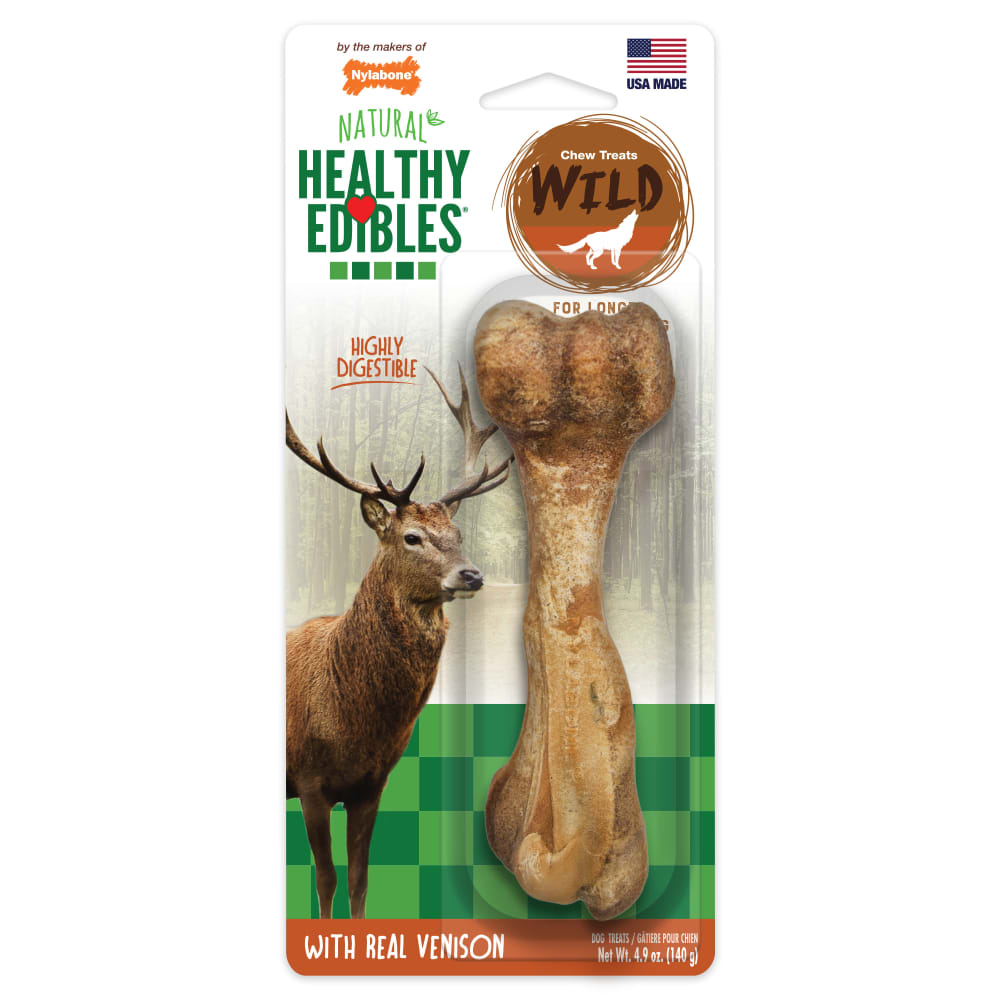Which Type of Toy is Right for Your Dog?
Chew toys are a great way for dogs to play on their own and release pent-up energy that could otherwise cause bad behaviors. Choose a chew or toy that is the proper size and strength for your dog’s size and chewing habits. If you have more than one dog in your house, select the size and type that are appropriate for your larger, more aggressive chewer.
Non-edible chew toys come in all shapes and sizes and are a great alternative to natural and rawhide bones. Some come in softer textures like plastic and rubber for young or small-breed dogs, while others are made from nylon for powerful chewers. Regardless of the material, if Fido wears down the ends or starts working off pieces of any chew or toy, throw it away to prevent the pieces from becoming a choking hazard.
Toys: Always choose a toy that is the proper size for your dog. He should never be able to get the entire toy in his mouth. For example, don’t allow your Golden Retriever to play with golf balls; he could easily swallow one, which could require emergency surgery. Tennis balls are a much safer option for a dog of this size.
Toys for stuffing: Some toys are made for stuffing with peanut butter, treats, and other food items. These are wonderful toys to occupy your dog, and they also function as great rewards. When you leave your dog in his crate, give him a food-stuffed toy to amuse him.
Tug toys: Choose a durable tug toy that will only be used for this purpose.
Rope toys: Many dogs love to chew and toss rope bones, but some will undo the knots, so supervise closely. If your dog unravels a knot, throw the rope bone away. Some dogs also like to pull the shredded ends of rope bones, and swallowed strings could pose a health risk. If your dog does this, try trimming the ends very close to the knot so that there is less to pull. If this doesn’t seem to work, choose another rope toy.
Balls: Balls come in all shapes and sizes, so select one that is durable enough for your dog’s chewing habits.
Bones: Always select a bone that your dog cannot fit entirely in his mouth. If he wears it down, throw it away. A huge buffet of bones is available for your dog to sink his teeth into, including:
- Natural bones. Don’t give your dog cooked bones from your leftover dinner because they could splinter, and pieces could potentially pierce the intestines. Instead, purchase raw bones made specifically for dogs.
- Rawhide bones. As your dog chews on rawhide, he will break off pieces and swallow them. Rawhide can be difficult for some dogs to digest. While many dogs do fine with rawhide chews, others experience digestive upset. Some dogs also tear through rawhides very quickly. If the bone is too small, it could choke him.
- Edible bones. Some bones are made up of edible materials and are designed for your dog to chew and consume. These bones, which come in a variety of flavors, are safe for him to eat completely. Look for edible bones without any plastics in them, such as the ones Nylabone makes.
- Nylon/plastic/rubber bones. These are more durable alternatives to rawhide bones. Some come in softer textures for young or small-breed puppies, while others are really tough for power chewers. Choose one that matches your dog’s chewing habits. Some bones are naturally flavored, and some have flavorings added for greater appeal. Nylabone makes a variety of these types of toys that are suitable for a range of dog sizes and chewing strengths.
FOLLOW US!





